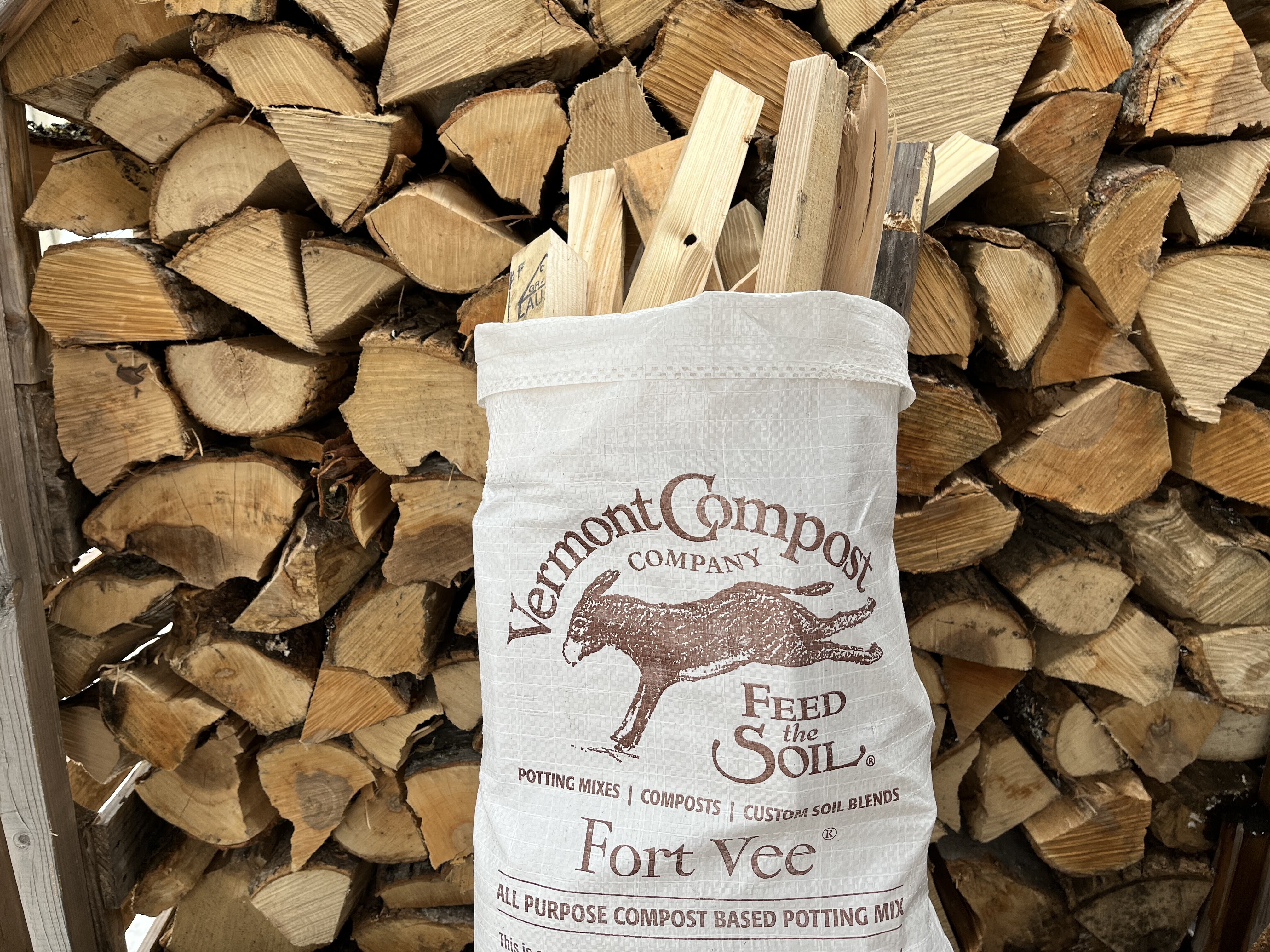
Our woven polyethylene bags ensure that our products are consistent and uncontaminated, no matter where they’re shipped. We don’t love packaging our living soils and composts in plastic. We’ve tried other bag materials, including burlap, but none have competed with the durability and water resistance of polyethylene.
As some customers have noted, our old bags degraded quickly when exposed to the elements and especially sunlight. In 2019, we started the process of switching to a new bag designed to be more water resistant and withstand solar degradation. So far, we have been very happy with the resilience of these bags.
If your reuse of these bags is outdoors, make sure to inspect them before each reuse to make sure they have not solar-degraded to a point of weakening or fraying. If they are fraying, we highly suggest disposing of them before they turn into a micro-plastic mess on your farm.
Unfortunately, most municipalities do not recycle polyethylene, as it requires special equipment to process. While some commercial facilities can recycle it into plastic pellets, we’ve been unable to locate a partner that will accept our bags.
Thankfully, many of our customers have experimented with creative ways to reuse our bags. Here are just a few of the ideas they have shared:
Landscape Fabric
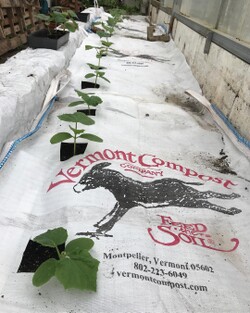 The farmers at River Crest Farm in Milford, CT suggested cutting sling bags into large, flat sections, which can be used like plastic mulch to suppress weeds within rows. Lay drip tape down first, then cut or burn holes in the sling bags where each seedling will be transplanted.
The farmers at River Crest Farm in Milford, CT suggested cutting sling bags into large, flat sections, which can be used like plastic mulch to suppress weeds within rows. Lay drip tape down first, then cut or burn holes in the sling bags where each seedling will be transplanted.
Bulk Bins
Our sling bags function well as inexpensive, easy-to-store bulk bins. Farmers have filled our bags with all sorts of products, like rolls of row cover, bundles of drip tape, stacks of seeding trays, bagged winter roots, and bulk cabbage.
Two Barn Farm in Pittstown, NJ, harvests winter roots into smaller, food safe bags, then stacks the bags into reused slings in the cooler. Another customer suggests hanging sling bags of rolled and labeled row cover from the barn rafters to keep mice from building nests in the material.
Other growers use sling bags to receive and move loads of bulk materials like mulch and animal feed.
Compost Storage
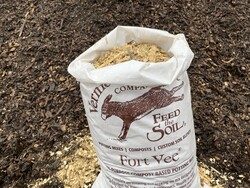
While we love our compost, we also support farmers who make their own blends from local resources. Of course, our sling bags store finished, mature compost very well. Before loading your compost into a sling bag, make sure that the compost maintains a stable temperature after being turned. While this likely goes without saying: we encourage reusing our bags in any way you see fit, but please do not sell any soil products packaged in them.
Our bags also work well for storing carbon sources, like dried leaves and wood shavings, to add to compost piles as needed.
Grow Bags
Many farmers have repurposed our sling bags into grow bags for a wide variety of plants. Fill the sling halfway with a well drained soil (like Fort Light), then cut off or fold down the excess material. If placed on a pallet, these bags can be moved around the farm to suit your needs. The sling bags can also be used to line the bottom of raised beds and large planters.
Firewood storage
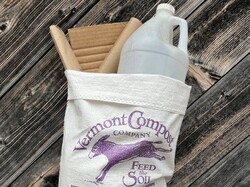
You can use sling bags to store and tote firewood around the farm. They’re also water resistant, so they can be used to tarp a firewood pile. Like all tarps, they will wear out over time, so plan to replace them as you order more soil.
Shade Structures
When cut into flat panels, sling bags can be hung between trees or posts to create simple, moveable shade structures for animals or farm workers. Against the Grain Farm in Zionville, North Carolina, has used this method for their pastured pigs for the last three years.
Decorative
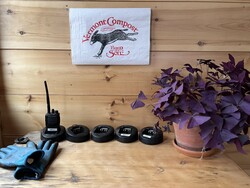
Crafty customers have sewed our bags into grocery bags and outdoor pillows, and many of our customers hang the bags on work area walls for decoration. A non-profit farm that focuses on youth education has kids build their own tents and forts out of sling bags.
Floor Mats
Our 20 and 60 quart bags make great floor mats or seat covers to keep farm trucks (somewhat) clean.
All-purpose Stuff Sack
Since our bags are water resistant and tough, the 20 and 60 quart sizes make great stuff sacks, for everything from keeping the irrigation repair toolkit together in the backseat of the truck to holding cover material for a composting toilet to collecting recyclables.
A few final notes as you plan to reuse your bags
While our bags have been coated to withstand solar degradation, they will wear out over time. Polyethylene can produce messy, hard to remove plastic shreds if it is exposed to the elements for too long. Be sure to monitor your bags and replace them before they start to wear down. When they aren’t actively being used, store them inside to maintain their lifespan.
Are you reusing bags at your farm? Send your ideas and photos to info@vermontcompost.com
